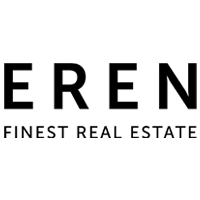Property gains tax: How is it calculated, depending on the canton?
Reading time — 4 minutes

Capital gains tax on real estate: how is it calculated according to the cantons?
When selling a property in Switzerland, the profit generated is taxable. The calculation method differs depending on the canton, but it rests on two pillars: the amount of profit realised and the length of ownership. In addition, under certain conditions, it is possible to benefit from a deferral of the tax. In this article, FGP Swiss & Alps explains how capital gains tax on real estate works and helps you estimate the approximate amount to be paid.
What is capital gains tax on real estate?
Whenever an owner makes a profit from the sale of a property (residential home or land), they are liable for capital gains tax on real estate. This occurs when the difference between the purchase price and the selling price is favourable to the seller.
Many expenses can be deducted from this profit, including:
- Sales-related costs: brokerage commissions, advertising expenses for the listing, penalties for early termination of the mortgage…
- Purchase-related costs: transfer duties, fees and notary charges, and investments that have generated added value in the property (such as improvement works).
Instead of the purchase price, it is possible (and in some cases preferable) to take into account the fiscal valuation, provided that it has been in force for at least 10 years. You will find this value on the Land Register extract or on a tax assessment notice. You may use the most favourable value at the time of sale.
How is capital gains tax on real estate calculated when selling?
The calculation of capital gains tax on real estate varies from one canton to another. However, it is based on two fundamental principles: the tax scale may be proportional or progressive, but it always takes into account the duration of ownership.
- Proportional scale: every gain is taxed at the same rate. The rate decreases with the length of ownership: the longer you have held the property, the less capital gains tax on real estate you pay. For example, in the canton of Geneva, the profit is taxed at 50% for ownership of less than 2 years.
- Progressive scale: the tax rate varies according to the profit realised and the duration of ownership. For example, in the canton of Valais, the tax can reach nearly 40% if the property has been owned for less than 1 year and the profit exceeds CHF 100,000.
In which cases can the tax be deferred?
In certain situations, capital gains tax on real estate may be deferred. This occurs when the change of ownership results from a succession, donation or advancement of inheritance, or when it takes place within a couple.
Another situation: if the proceeds of the sale are reinvested in the purchase of a new property serving as a primary residence, still in Switzerland. The transaction must take place within a “reasonable time frame”: between 2 and 4 years depending on the canton. The tax is deferred on the part of the profit invested in the new property.
Note: this is a deferral and not a cancellation. The tax is eventually paid later, when the property is sold to a third party, and is calculated on the original purchase price. The previous owner’s period of ownership is also taken into account.
How is capital gains tax on real estate calculated by canton?
The details of capital gains tax on real estate vary considerably depending on the canton.
Cantons of Fribourg, Geneva and Vaud: proportional taxation
- Fribourg: tax rate of 35.2% for ownership of up to 2 years, decreasing to 16% beyond 15 years. If the profit exceeds CHF 400,000 for a property held for less than 5 years, the tax is increased by 40%.
- Geneva: tax rate of 50% below 2 years of ownership, with a minimum of 10% for 25 years and more.
- Vaud: maximum tax rate of 30% (1 year of ownership), down to a minimum of 7% (from 24 years of ownership).
Cantons of Berne, Jura, Neuchâtel and Valais: progressive taxation
- Berne: maximum tax rate of 40%, reduced by 2% per year of ownership, with a surcharge of 10 to 70% for ownership shorter than 5 years. The progressive rate applies at 1.44% on the first CHF 2,700 of profit, rising to 8.1% on gains above CHF 195,300.
- Jura: tax rate of 3.5% up to CHF 50,000 of profit, 4.5% up to CHF 100,000, and 5.5% up to CHF 200,000. After 10 years of ownership: a 1% reduction per year.
- Neuchâtel: tax rate of 10% on the first CHF 5,000, rising to 30% on profits above CHF 135,000. After 5 years of ownership: a 6% reduction per year.
- Valais: tax rate of 19.2% up to CHF 50,000, 28.8% up to CHF 100,000, and 38.4% above that. A progressive allowance applies for each year of ownership, with a maximum of 1%, 2% and 3% reductions respectively beyond 25 years.
If you expect to realise a substantial profit from the sale of your property, it is important to calculate in advance your future capital gains tax on real estate. The rules differ widely by canton, with rates that may be proportional or progressive, and reductions based on ownership duration.
For an accurate calculation and for strategies to optimise your tax position, always seek the advice of your broker.


